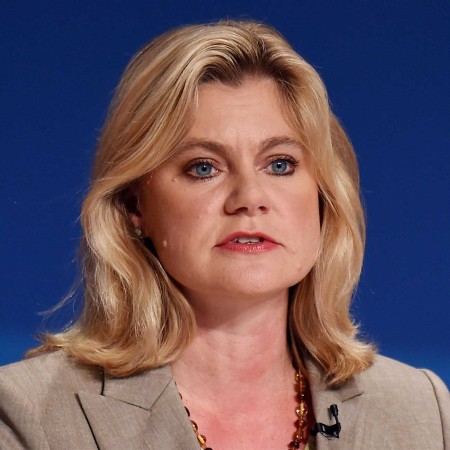The government on 1st March 2017 tabled amendments to the Children and Social Work Bill which will make it a requirement that all secondary schools in England teach relationships and sex education (RSE) as soon as September 2019.

The amendments also allow the government to make regulations requiring personal, social, health and economic education (PSHE) to be taught in all schools in England – primary and secondary, maintained and academy – in future.
Relationships education, RSE, and PSHE are designed to ensure pupils are taught the knowledge and life skills they will need to stay safe and develop healthy and supportive relationships, particularly dealing with the challenges of growing up in an online world.
Currently only pupils attending local-authority run secondary schools – which represent around a third of secondary schools – are guaranteed to be offered current sex and relationships education, and PSHE is only mandatory at independent schools. Neither are currently required to be taught in academies.
The government is proposing the introduction of the new subject of ‘relationships education’ in primary school and renaming the secondary school subject ‘relationships and sex education’, to emphasise the central importance of healthy relationships. The focus in primary school will be on building healthy relationships and staying safe. As children get older, it is important that they start to develop their understanding of healthy adult relationships in more depth, with sex education delivered in that context.
The statutory guidance for RSE was introduced in 2000 and is becoming increasingly out dated. It fails to address risks to children which have grown in prevalence in recent years, including online pornography, sexting and staying safe online. As a result now is the right time to address these issues.
The government is already taking action to address this with the introduction of a new internet safety green paper later this year, which will set out a series of steps to make the internet a safer place for young people.
This will be complemented by a comprehensive programme of engagement by the Department for Education (DfE) with stakeholders to set out suitable, age-appropriate content on RSE which focuses on mental wellbeing, consent, resilience, age-appropriate relationships and sex education, and keeping safe online. Regulations and statutory guidance will then be subject to full public consultation later this year, and we expect to see children and young people being taught this new curriculum in schools as soon as September 2019.
Schools will have flexibility over how they deliver these subjects, so they can develop an integrated approach that is sensitive to the needs of the local community; and, in the case of faith schools, in accordance with their faith.
Education Secretary Justine Greening said: RSE and PSHE teach children and young people how to stay safe and healthy, and how to negotiate some of the personal and social challenges they will face growing up and as adults. These subjects form part of the building blocks young people need to thrive in modern Britain. At the moment, too many young people feel they don’t have the RSE they need to stay safe and navigate becoming an adult.
It is time to make this change to ensure all children and young people have access to these subjects and to update the current statutory guidance for RSE which was introduced nearly 20 years ago, in 2000. We need high-quality, age-appropriate content that relates to the modern world, addressing issues like cyber bullying, ‘sexting’ and internet safety.
We will now begin a review and gather expert opinions to ensure these subjects really have a positive impact on young people.
Both young people themselves and parents are calling for a consistent approach on RSE. A survey of 16- to 24-year-olds carried out by the Terence Higgins Trust in July 2016 showed that 99% of young people thought RSE should be mandatory in all schools; and 1 in 7 had not received this education.
The amendments will continue to allow parents a right to withdraw children from sex education, and schools will be required to publish a clear statement of their policy and what will be taught, so that parents can make informed decisions. As is already the case where sex education is currently mandatory, schools will also have flexibility over how they teach these subjects so they can ensure their approach is sensitive to the needs of the local community and, in the case of faith schools, in accordance with the tenets of their faith.
Russell Hobby, General Secretary of the National Association of Head Teachers (NAHT), said: NAHT have long advocated age-appropriate sex education and PSHE for all pupils in all schools, to help prepare young people for the challenges they will encounter in their adult lives and the current challenges they will face beyond the school gates. We welcome the duties set out today and look forward to playing our part in ensuring RSE/PSHE delivers for young people.
Barnardo’s Chief Executive, Javed Khan, said: We are thrilled the government has listened to our campaign to provide all school children with age-appropriate school lessons on sex and healthy relationships to help keep them safe. Barnardo’s has long campaigned for this vital education so children can better understand the dangers in the real world and online. We believe this will give children the knowledge and skills they need to help prevent them being groomed and sexually exploited.
Sarah Green, Co-director of the End Violence Against Women Coalition, said: This is a real step forward in ending violence against women and girls and we commend the government for listening to experts and responding. It opens the door to high-quality RSE that will let young people have the essential conversations about consent, respect and LGBT equality. QualityRSE is a chance to talk with young people about how men and women treat each other, and to challenge the attitudes which minimise or make excuses for abuse of women and girls. It is a chance to emphasise such violence is always unacceptable, whether on our streets or in our schools.










